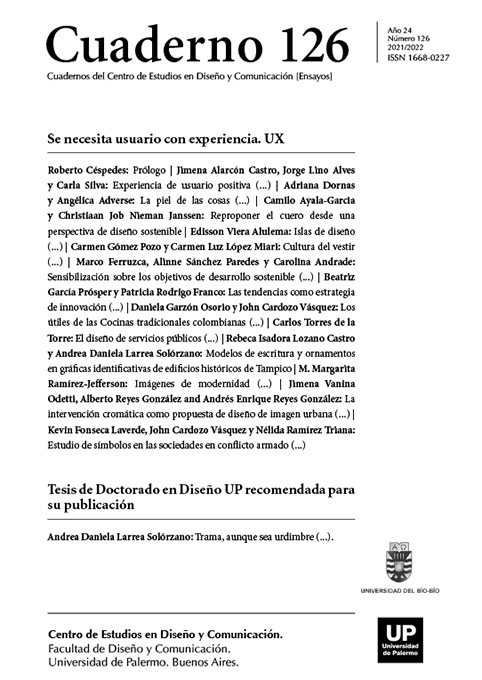El diseño de servicios públicos: la experiencia del ciudadano como usuario de servicios
Abstract
This article synthesizes research related to the development by the author, of his doctoral thesis on the subject of product design in the service economy. In this thesis, the design operation of public services is analyzed through the study of four cases of design of integral solid waste management systems. These case studies have been located in Ecuador in the last 4 years and are related to a public policy of decentralization that forces local governments to assume the competence of this public service. In the part of the research that gives rise to this article, it specifically seeks to investigate the perception of the community regarding the quality of a public service and relate it to the willingness to pay a specific rate.
The existence of relationships between the level at which the community participates in the elaboration of public policy, the perception of service quality and the willingness to pay for it, is demonstrated. There is also a relationship between the perception of service quality and the availability of technically selected equipment in contrast to the perception of quality when the equipment is selected for political agendas. In addition, the role of the media in articulating the participation of society is described, but also in the formation of a collective conscience about the responsibilities of citizens, their rights and obligations towards the integral management of solid waste and the environment, and the need to adopt responsible habits.
References
Canasi, J. (1974). Derecho Administrativo, vol. II, Parte especial. Buenos Aires: Ediciones Depalma.
Oliver-Mora, M. (2017). Diseño de servicios públicos desde abajo hacia arriba [Tesis doctoral Universitat Autónoma de Barcelona], TDX. http://hdl.handle.net/10803/405588
Los autores/as que publiquen en esta revista ceden los derechos de autor y de publicación a "Cuadernos del Centro de Estudios de Diseño y Comunicación", Aceptando el registro de su trabajo bajo una licencia de atribución de Creative Commons, que permite a terceros utilizar lo publicado siempre que de el crédito pertinente a los autores y a esta revista.


